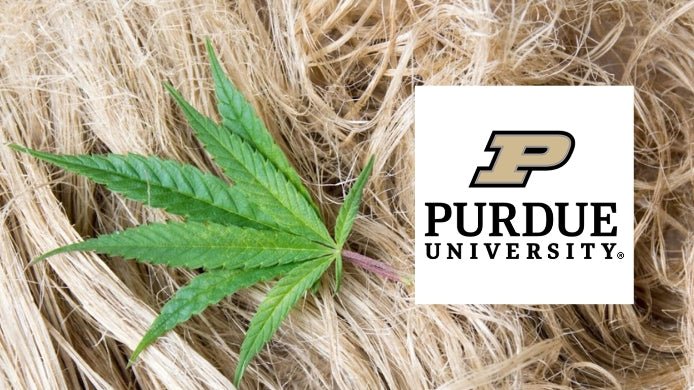The President heralded the 'monumental' action as an overdue step in helping to reverse the 'historical inequities' caused by marijuana's classification as a Schedule 1 narcotic.

The rescheduling of cannabis from a Schedule 1 to a Schedule 3 drug as part of the Controlled Substances Act took a significant step forward this week when President Joe Biden announced that his administration would be moving to reclassify marijuana under federal law. The announcement, which comes two weeks after the U.S. Drug Enforcement Agency (DEA) confirmed its decision to reschedule the plant, marks a substantial win for cannabis reform advocates, even though the change does not federally legalize marijuana.
On Thursday, a senior administration official confirmed that the Justice Department will soon post the proposed change in the Federal Register. After the posting, there will be a 60-day public comment period before the rule is finalized.
In a video about the rescheduling decision, Biden said, "This is monumental. Today, my administration took a major step to reclassify marijuana from a Schedule I to a Schedule III drug. It's an important move towards reversing longstanding inequities."
"This is monumental. Today, my administration took a major step to reclassify marijuana from a Schedule I to a Schedule III drug. It's an important move towards reversing longstanding inequities."
- President Joe Biden on Marijuana Rescheduling
For Biden, the announcement is a culmination of efforts on the part of his administration to honor his election promise to address the archaic federal policies concerning cannabis, particularly the ridiculously punitive classification of the plant as a Schedule 1 narcotic.
During his video announcement, the President went on to say, "Today's announcement builds on the work we've already done to pardon a record number of federal offenses for simple possession of marijuana. It adds to the action we've taken to lift barriers to housing, employment, small business loans, and so more for tens of thousands of Americans. Far too many lives have been upended because of a failed approach to marijuana, and I'm committed to righting those wrongs. You have my word on it."
"Today's announcement builds on the work we've already done to pardon a record number of federal offenses for simple possession of marijuana. It adds to the action we've taken to lift barriers to housing, employment, small business loans, and so more for tens of thousands of Americans. Far too many lives have been upended because of a failed approach to marijuana, and I'm committed to righting those wrongs. You have my word on it."
- President Joe Biden on Marijuana Rescheduling
The President's words were part of a well-orchestrated political marketing blitz to maximize the positive effects of the historic moment in American history. Along with Biden's video presentation, Vice President Kamala Harris posted a video supporting the President's validation of the DEA's decision.
As part of her video response to the move, Harris, who recently called for an end to federal prohibition during a closed-door meeting with marijuana pardon recipients, said that "currently marijuana is classified on the same level as heroin and more dangerous than fentanyl. We are finally changing that. But I want to thank all of the advocates and everyone out there for helping to make this possible and we are on the road to getting it done."
"Currently marijuana is classified on the same level as heroin and more dangerous than fentanyl. We are finally changing that. But I want to thank all of the advocates and everyone out there for helping to make this possible and we are on the road to getting it done."
- Vice President Kamala Harris on Marijuana Rescheduling
While cannabis reform activists and industry stakeholders almost universally applauded the move, Biden's announcement stops short of giving American weed enthusiasts the news they really wanted to hear – an end to federal prohibition.
However, the rescheduling is significant. According to a report by the Congressional Research Service (CRS), the reclassification could reduce penalties for certain marijuana-related offenses, enable cannabis businesses to deduct certain business expenses on their federal tax returns (280E) and expand research opportunities for scientists studying the health effects associated with cannabis.
Despite the announcement's overall positive vibes, critics of the shift in federal policy are quick to point out the downside of rescheduling, such as mandating the roughly 15,000 marijuana dispensaries in the U.S. to register with the DEA, much like regular pharmacies do now. Likewise, those companies would have to fulfill rigorous reporting requirements, which many are averse to, and the agency is ill-prepared to handle.
All eyes will now shift to the highly anticipated public comment period. Technically, the official rescheduling of cannabis cannot occur until after the public has had a chance to voice its support or opposition to the move. However, while the media and specific interest groups may take the comment period as an opportunity to voice their respective positions concerning the reclassification, Washington insiders ultimately expect the change to be approved.
Many Biden backers hope the rescheduling announcement can boost the President's sagging popularity among younger voters over the war in Gaza and other hot-button domestic issues. However, to truly reach Generations Y and Z, full federal legalization may be the only chance to rescue Biden's hopes for a second term—an outcome that is unlikely to occur between now and November.







































